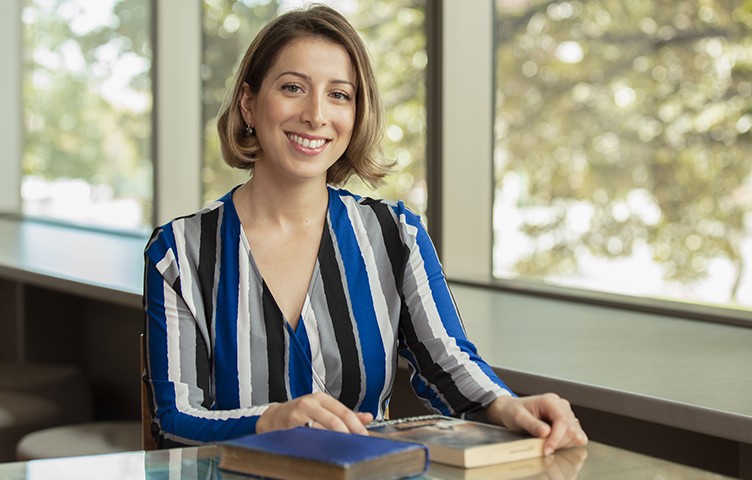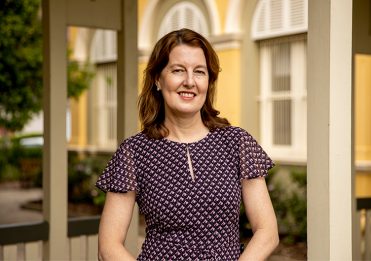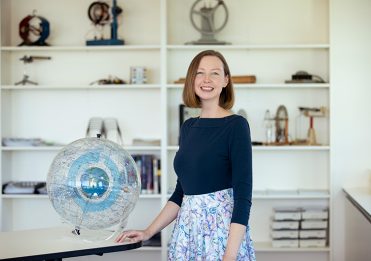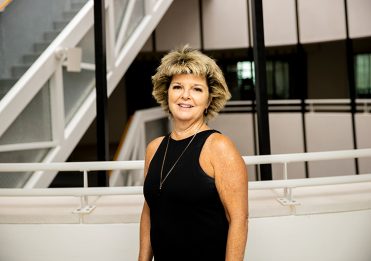
Rita, an English teacher and Coordinator of the School’s EAL/D Program, overcame significant challenges to pursue her goals. She wants Girls Grammar students to know that they have the power to choose their future.
Our background frames the way we interpret and interact with the world—our conversations, the way we read and understand texts, and our expectations of ourselves and others.
I was born in New Zealand, to Iraqi refugee parents. They left Iraq in 1980 and fled to Greece. Five years later, they were granted asylum in New Zealand. They were the first Iraqi family to arrive in the country.
Both of my parents had been teachers in Iraq, but when they arrived in New Zealand they found it hard to continue their former lives. My father became involved in the restaurant business, and my mother worked as an interpreter at the Wellington Hospital. As more Iraqi and Arabic-speaking families arrived, her role became increasingly important.
I attended a girls’ school and I always admired my teachers. In the Middle East, teaching is regarded very highly, as a very altruistic profession. We have a long line of teachers in my family; my grandfather and great grandfather were both deputy principals.
I always felt I had a talent for helping people whose first language was not English. I often interpreted for my extended family and I always enjoyed bringing understanding to people. I decided that I wanted to pursue this as a career, to help people become comfortable using English and exploring English literature.
However, I faced challenges in pursuing this goal. As a young Iraqi woman, there were certain cultural expectations placed upon me. I started my undergraduate education at Wellington University, intending to teach English and English as a Second Language (ESL), as it was called at the time, but over time, I felt that it was important to commit to my family and uphold their expectations of me. I abandoned my study to focus on that aspect of my life.
Eventually, I decided that I needed to change the course of my life and return to my study.
By this point, English as a Second Language was no longer a second teaching area option at my university. While I was researching other study options, I found that The University of Queensland offered qualifications for teachers of English as an Additional Language or Dialect (EAL/D), so I moved to Brisbane by myself.
At first, my parents struggled, for cultural reasons, to accept this decision. However, throughout it all, I had confidence that they would eventually understand. I knew I had made my decisions for the right reasons; I had taken control of my life, and knew what I wanted to achieve.
This is my third year at Brisbane Girls Grammar School—my first teaching position. I feel very lucky to have such an important role so early in my teaching life.
As the School’s EAL/D coordinator, I support a small group of students with their control of the English language. I provide help to about 15 students at any time, ranging from Years 7 to Year 11, and generally the girls participate in the program for one to two years, until they are competent and confident in their abilities. I am particularly passionate about helping these girls to develop their own ‘cultural capital’—the idioms and concepts that are alluded to, and not explicit, in everyday language. That hidden meaning is extremely difficult for non-native speakers to decipher, and as an EAL/D student myself, it had been something I was determined to conquer when I was young. It made me a voracious reader—I wanted to understand everything about a text, even the deeper, inferred meanings.
My message for EAL/D students is to ‘switch on’, so to speak. When you are constantly surrounded by language you aren’t completely comfortable with, you can feel overwhelmed, and the lure of simply ‘turning off’ is so forceful. I encourage girls to stay alert, to listen just that little bit longer; there might be some small detail they can understand.
I am passionate about teaching young women, and equipping them with skills for the world beyond secondary school. Historically, our voices haven’t been the loudest, and I believe it is essential for girls to be empowered to stand up and present their ideas and convictions with confidence.
My aim is to inspire in our girls the belief they can embark on their own journey, be masters of their own future.




